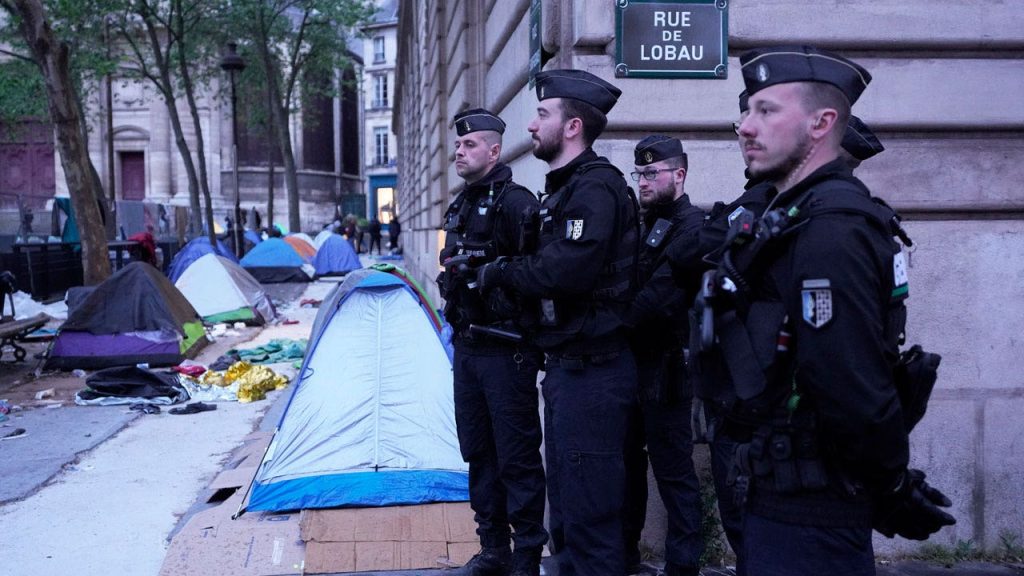French police conducted an early morning operation to evict around 100 teenage boys and young men from a makeshift tent-camp near Paris City Hall, drawing criticism from aid groups who claim it is part of a campaign to beautify the city ahead of the Summer Olympics. Paris police cited security concerns as the reason for the eviction, as the camp was located near schools. The men, many of whom were minors and in the process of seeking residency papers, were offered temporary housing in the town of Angers, but most chose to walk away, fearing isolation once the three-week accommodation period ends. This cycle of eviction and resettlement is a problem that advocacy groups say is exacerbating social issues and marginalized populations in the city.
Campaign group Revers de la Médaille has been vocal about the impact of the Olympics on marginalized people, accusing authorities of engaging in “social cleansing” to make way for a more picturesque Paris. The group claims that those evicted from camps and squats are continually forced to relocate, only to be removed once again. The recent eviction, conducted in compliance with an advance order issued by Paris police chief Laurent Nunez, highlighted the increased security around public buildings in light of potential terrorism threats. Migrant camps are typically dismantled every spring in France, following an annual winter truce that limits evictions during cold weather. Paris City Hall reports a significant increase in homelessness, with 3,500 people living on the streets, 500 more than the previous year.
Aid groups assisting migrants and other vulnerable populations have raised concerns about the intensification of clear-outs leading up to the Summer Olympics. They argue that individuals are being sent far from the capital instead of being provided shelter in the Paris region, where many asylum-seekers have legal obligations and meetings related to their residency applications. The situation has sparked debate about the treatment of homeless individuals and displaced migrants in the face of a major international event. The decision of the evicted men to walk away from the temporary accommodation offered in Angers reflects their fear of isolation and lack of support once the initial three-week period ends.
The ongoing issue of evictions and makeshift settlements in major cities like Paris underscores broader social and political challenges related to homelessness and migration. Critics argue that the strategy of clearing out camps and relocating individuals without offering sustainable solutions only perpetuates the cycle of displacement and marginalization. The timing of the evictions, particularly in preparation for the Summer Olympics, has raised questions about the prioritization of aesthetics over human welfare. Advocates continue to call for comprehensive and humane approaches to addressing the needs of homeless populations and migrants, emphasizing the importance of long-term support and inclusion.
The decision to prioritize security concerns in the eviction of the makeshift tent-camp near Paris City Hall reflects the complex balancing act faced by authorities in addressing issues related to homelessness and migration in urban areas. While security measures are necessary to ensure public safety, the methods used to clear out camps and displace individuals raise ethical and humanitarian questions. The lack of sustainable solutions for those affected by the evictions highlights the need for a more holistic approach that considers the long-term well-being and integration of marginalized populations. As the debate continues, advocates urge policymakers to prioritize human rights and social justice in their response to homelessness and migration in the context of major events such as the Summer Olympics.













